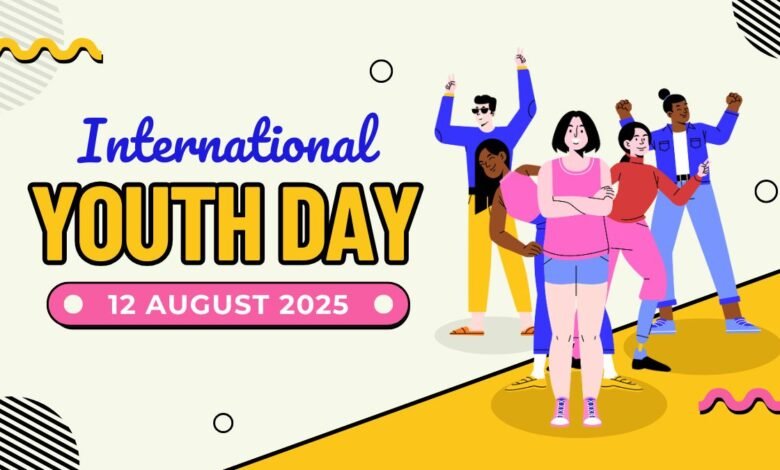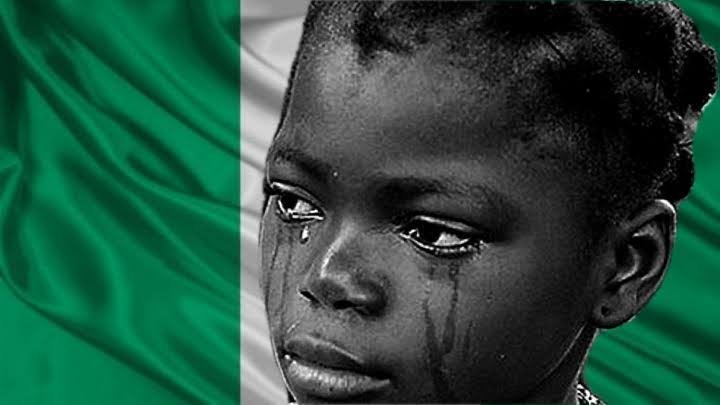International Youth Day 2025: Empowering the Next Generation of Global Changemakers

Every year on August 12, the United Nations observes International Youth Day, celebrating the energy, creativity, and leadership of young people globally.
First marked in 2000, the day aims to draw attention to issues affecting youth, ranging from employment and education to climate action and digital inclusion, while highlighting their potential to be agents of social change.
This day celebrates the voices, ideas, and impact of youth globally. It honors the contributions young people make toward building inclusive, equitable, and sustainable societies. It also underscores the importance of investing in youth development and equipping the next generation with the tools they need to create a brighter future.
Theme for 2025 International Youth Day
The theme for 2025, “Local Youth Actions for the SDGs and Beyond”, focuses on how young people can advance the Sustainable Development Goals (SDGs) while addressing challenges within their communities.
This year’s observance highlights youth-led initiatives that promote inclusivity, sustainability, and community resilience.
It emphasizes how local action can contribute to achieving the SDGs while also tackling broader issues such as social justice, climate change, and technological innovation.
The theme calls on local organizations, governments, and community groups to support youth in developing practical solutions and to provide them with the resources they need to build a better future.
History of International Youth Day
The origins of International Youth Day trace back to 1985, when the United Nations declared the International Youth Year, focusing on peace, development, and participation.
In 1991, during the World Youth Forum in Vienna, young delegates proposed setting aside a special day to spotlight youth issues and contributions.
This idea gained momentum in 1998 at the World Conference of Ministers Responsible for Youth, held in Lisbon, Portugal, where the creation of an official youth day was formally recommended.
On December 17, 1999, the United Nations General Assembly adopted the proposal, officially establishing International Youth Day. The first celebration took place on August 12, 2000, marking the beginning of a global movement to honor and empower young people.
Significance of International Youth Day
International Youth Day highlights the essential role young people play in building a more equitable and sustainable future.
The day promotes equal opportunities, youth empowerment, and active participation in solving pressing global and local problems. It celebrates young leaders, thinkers, and problem-solvers who influence their communities and the world at large.
Rather than viewing youth as passive recipients of change, the observance recognizes them as active drivers of progress.
This year’s celebration also marks the tenth anniversary of the launch of the 2030 Agenda for Sustainable Development, reminding the world that achieving the SDGs depends on strong youth participation, local action, and informed decision-making.
Challenges Facing Today’s Youth
International Youth Day shines a light on the pressing challenges facing the youth. These include limited access to quality education, high unemployment rates, barriers to civic participation, mental health concerns, and socioeconomic inequalities that restrict growth opportunities.
The rapid pace of digital transformation presents additional hurdles, with some young people lacking the skills or resources to fully participate in the digital economy.
Addressing these issues is crucial to ensuring that youth can contribute meaningfully to shaping a fair, inclusive, and sustainable world.
How International Youth Day Is Celebrated
Across the globe, International Youth Day is marked with a wide variety of events. Youth networks and organizations host awareness campaigns, online forums, and leadership conferences, fostering meaningful dialogue between policymakers and young innovators.
Local events often include cultural festivals, marathons, art exhibitions, and environmental cleanup campaigns.
Schools and universities organize discussions, workshops, and competitions to encourage creativity and civic participation.
Social media also plays a vital role, amplifying youth voices and mobilizing global engagement.
The Role of Government, Communities, and Society in Youth Empowerment
Government should
- Provide quality education and skills training for young people.
- Create employment opportunities and support youth entrepreneurship.
- Make policies and laws that protect and empower the youth.
- Provide healthcare and mental health services for young people.
- Provide platforms for youth participation in leadership and decision-making.
-
Fund youth-led projects and innovation programs.
Communities should
- Offer mentorship and guidance to young people.
- Provide safe spaces like community centers and sports facilities.
- Promote cultural values and strengthen youth identity.
-
Connect youth to local opportunities and resources.
The Society should
- Encourage youth participation in social, political, and economic activities.
- Promote equality among young people.
- Collaborate with youth in projects, volunteering, and innovation.
-
Use media to inspire, educate, and celebrate youth achievements.
Conclusion
As we celebrate International Youth Day, we must remember that transformative change begins at the community level. By empowering young people to take ownership of solutions, society can spark a chain reaction that crosses borders and generations, paving the way toward a more just, inclusive, and brighter future.





